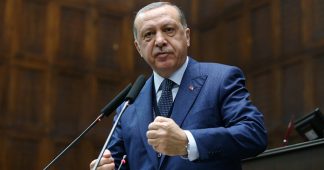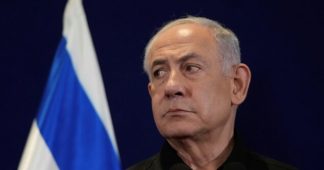By Patrick Gillespie and Manuela Tobias
Buenos Aires: Javier Milei’s incoming administration is shaping up to be one of the most pro-Israel governments in Argentina’s history, at a time when other Latin American nations have spoken out against Prime Minister Benjamin Netanyahu’s strategy to eradicate Hamas.
A week after winning the November 19 run-off election, Milei arrived in New York on Monday for his first trip abroad as president-elect and headed straight to the tomb of famous orthodox rabbi Menachem Mendel Schneerson’s grave to pay respects, wearing a kippah and all-black outfit.
The symbolic gesture illustrates how committed the incoming leader is to deepening Argentina’s cultural and political ties with Israel, while much of South America, a Catholic stronghold, remains neutral or even critical.
Milei went to the grave site before any other meetings with US officials or the International Monetary Fund in Washington.
The president-elect is converting to Judaism, as per one of his spokespersons, and on Saturday participated in a Jewish ceremony in Buenos Aires where he received a blessing from another rabbi.
Less than two weeks before he takes office and without a full cabinet in place, he called the US visit a “spiritual” trip, his second since early September. It remains unclear when or why Milei, who grew up Catholic, chose to convert.
The incoming president’s fervently pro-Israel stance singles out Argentina, already home to the region’s largest Jewish population, as Israel’s top ally in Latin America. Milei has repeatedly said he plans to visit the country and move Argentina’s embassy to Jerusalem from Tel Aviv.
At the same time, he’s only starting to smooth over relations with Pope Francis, who is Argentinian, after previously heaping criticism on him while running as a candidate.
While Argentina has traditionally sustained good relationships with Israel – outgoing President Alberto Fernandez picked the Middle Eastern nation for his first international trip as head of state in January 2020 – Milei’s approach contrasts with increasing criticism from South America’s leftist leaders over Israel’s offensive in the Gaza Strip.
Earlier this month, Colombian President Gustavo Petro threatened to suspend diplomatic ties after Israeli officials called some of his comments antisemitic, while Chilean leader Gabriel Boric temporary pulled his ambassador from the Jewish state to protest its attack in Gaza.
The hard-left government of Bolivia cut off diplomatic relations with Israel altogether, accusing it of “crimes against humanity”. Brazil’s Luiz Inácio Lula da Silva has taken a more neutral approach, though he too has criticised Israel’s response.
The new president’s strategy comes when stakes are high: Hamas took up to 21 Argentinians hostage after its October attack in Israel, one of the largest nationalities involved in the assault. Five Argentinian captives were among the 11 hostages being freed from Gaza on Tuesday (AEDT).
To some observers, Milei’s support for Israel represents more a tilt than a shift in the country’s existing policy.
“His personal passion on the issue, his strong person beliefs, let us anticipate that Argentina’s support for Israel will intensify,” Juan Cruz Diaz, managing director of Buenos Aires consultancy Cefeidas Group, said. “We’re talking more about continuity than disruption.”
We remind our readers that publication of articles on our site does not mean that we agree with what is written. Our policy is to publish anything which we consider of interest, so as to assist our readers in forming their opinions. Sometimes we even publish articles with which we totally disagree, since we believe it is important for our readers to be informed on as wide a spectrum of views as possible.











